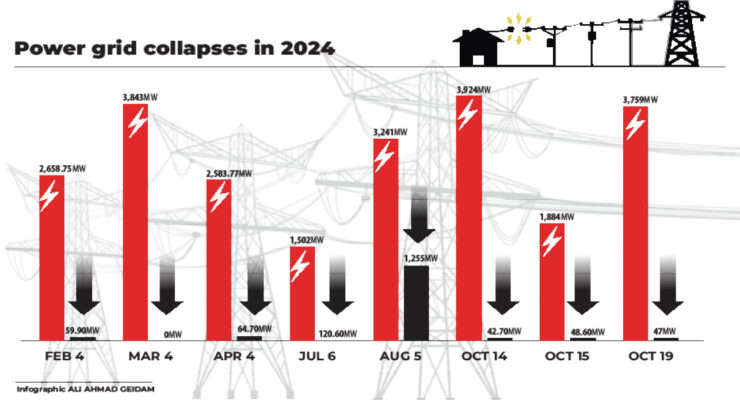
Residents and small business owners in Nigeria’s northern regions, including the North-East, North-West, and parts of North-Central, are grappling with severe electricity shortages following a significant blackout. This situation has arisen due to issues affecting a backup power line intended to supply states serviced by the Kaduna Electric, Jos Electricity Distribution Company, and Kano Electricity Distribution Company (KedCo). Reports indicate that these distribution companies received only 160 megawatts from the national grid after the 330kV DC Transmission Line was compromised due to vandalism on the Shiroro-Kaduna lines.
The Transmission Company of Nigeria (TCN) explained that a fault caused the 330kV DC Ugwaji-Apir Double to trip, plunging the affected regions into darkness. Ndidi Mbah, TCN’s General Manager for Public Affairs, noted that both lines involved tripped shortly after each other, resulting in a total loss of 468 megawatts. Efforts to locate the cause of the faults have been hampered by a ‘sit-at-home’ directive in the Southeast.
The frequency of grid failures this year has raised alarm among the populace. Data reveals that the first grid collapse occurred on February 4, with subsequent incidents occurring on March 28, April 15, July 6, August 5, and more recently on October 14, 15, and 19, leading to considerable drops in power generation.
Impact on Small Enterprises
The blackout has taken a toll on local businesses. Bashir Ismail Usman, a rice miller, reported that many local millers had halted operations due to skyrocketing energy costs, severely disrupting supply chains and contributing to rising rice prices. Tailors like Muhammad Sani have also felt the pinch, citing increasing fuel costs and the unreliable electricity supply that limits their productivity.
In Gombe State, Ibrahim Shuaibu, a tailor, noted that he has managed to sew only a handful of items over the past week due to erratic power supply. Similarly, Jamilu Abdulwahab, who runs a business center in Kano, has switched to generator use despite the financial strain it imposes on his operations.
Danladi Ibrahim, a welder, expressed frustration, saying, “This power outage is not new; it’s a long-standing issue affecting our livelihoods. We cannot afford diesel, and our trades depend heavily on electricity.”
Regional Experiences of Blackouts
In Jigawa, residents have faced nearly ten consecutive days without power. Tailors like Yusha’u Isma’il lamented that customers have become increasingly aggressive about delays, while Ibrahim Ahmad noted that his fellow tailors could not afford to operate generators due to high petrol prices.
In Zamfara, Abdulhadi Musa shared that many tailors have completely closed their shops, as they rely solely on the electricity provided by local distribution companies. Meanwhile, Yusuf Bello Gummi, a barber, reported having to increase his service charges due to fuel expenses, yet many customers are unable to pay.
Kaduna’s Jamilu Ibrahim stated that he has resorted to using rechargeable clippers for his salon because the persistent outages make it difficult to keep his equipment charged. Similarly, in Bauchi, journalists and business owners are struggling to maintain operations due to the ongoing blackouts.
In Sokoto, Malama Zainab reported that her household is now forced to pay much higher prices for water, which has become increasingly scarce due to the outages.
Government Response and Call for Action
In light of these ongoing issues, the Minister of Power, Adebayo Adelabu, has announced the formation of a forensic committee tasked with investigating the frequent grid collapses and providing recommendations to improve the reliability of the national grid. Adelabu acknowledged that the current situation undermines recent achievements in increasing power generation.
Furthermore, Kunle Kola Olubiyo, President of the Nigeria Consumer Protection Network, has called for a state of emergency in the power sector, urging immediate government intervention to revitalize electricity supply across the country.
For ongoing updates and discussions, join our WhatsApp channel: WhatsApp Channel.
Reporters contributing to this story include Faruk Shuaibu (Abuja), Ahmad Datti (Kano), Ali R. Ali (Dutse), Amina Abdullahi (Yola), Mohammed I. Yaba (Kaduna), Umar Muhammed (Lafia), Yusha’u A. Ibrahim (Gusau), Haruna G. Yaya (Gombe), Tijjani Ibrahim (Katsina), and Abubakar Auwal (Sokoto).